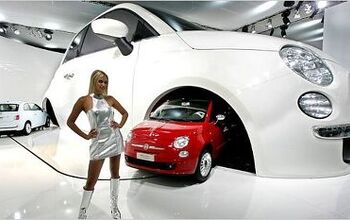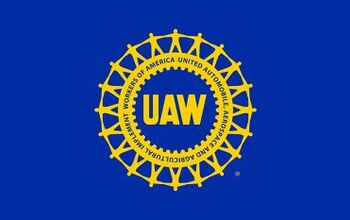Editorial: Chrysler Zombie Watch 5: Saving Private Chrysler
Saving Chrysler is just stupid. There isn’t one shred of pure economic logic—never mind basic business sense—to rescue this company from liquidation. Yet, here we are watching tax dollars garnered from real earners (individuals and corporations) tossed into a swirling morass circling the drain of history. It’s time to speak up against this misbegotten adventure. And, well, here I am.
My argument against saving Chrysler springs from one basic business premise: risk taken should be compensated by adequate reward. It should be intuitively obvious that all the capital invested into Chrysler since Daimler’s acquisition back in 1998 and Cerberus in 2007 has never earned an adequate return. So why should we think that the US Government will be smarter than a successful German automaker or a wealthy private equity firm? Does it really make sense to pour (past and future) $12 billion or more of taxpayer dollars into the same hole?
Let’s review. Daimler acquired Chrysler for $36 billion or so and spent billions more trying to make a go of it. Sure, Chrysler had some profitable years in the interim. But by the end, Daimler recognized that there would be no future and effectively walked away from the mess. The decision matrix in Stuttgart came down to this: there would never be a return on the investment in Chrysler. It was an experiment in globalization gone seriously awry.
Despite public announcements to enhance and restore an American icon (hey, Steve Feinberg, you don’t look so good in that American Flag outfit), Cerberus had no intentions of making Chrysler into a real company. Rather, it would be a strip and flip operation by reducing expenses, fobbing off vehicle development to others (Nissan, Mercedes, and anyone else) and make money from financing customers’ wheels. We know how well this business strategy worked. Cerberus lost $7 billion of someone’s money (we still don’t know whose). All gone forever.
And now the American taxpayer has become the next sucker in the game of Chrysler. What is the ante at the table so far? Some $6 billion and going higher. And for what? To continue the fallacy that Chrysler in the last two decades has been a great American icon? Even President Obama can’t polish that pig.
The lawyers in bankruptcy court have argued about absolute priority, lenders tainted by TARP funds, and diminution of value without a quick sale. But it’s really irrelevant. The fact remains that any dollars plowed into Chrysler will never provide an adequate return.
Let’s review the government’s plan with Chrysler . . . With a quick asset sale, a modified UAW labor agreement, Italian management today, small cars tomorrow, and perfecto! We’ll enter into an automotive utopia of profits and cash flow. Will someone please dial 911 to the White House and clue the Administration into reality please?
There are NO good assets of Chrysler cobbled together in any fashion that can be considered as a going concern. Recall that Chrysler has had little retail success in the past several years with its product line. Fleet sales likely made up at least 40% of all sales. Guess what? The New Chrysler will have the same product line. Does the President really believe that American consumers will now wake up and buy Chrysler products all of a sudden? If so, he’s sadly mistaken.
Some will argue that the New Chrysler has a competitive labor agreement. Yea, so what? Labor makes up less than 10% of the total cost of running a car company. And GM and Ford get the same deal—which matches mostly what all the transplants already have. No real advantage there.
But the coup de grâce rests with faith in the Italians to do a better job running this mess. C’mon now! Fiat is and always has been a second-tier automotive player in Europe. Its product reputation hasn’t brought it accolades. And why would Americans even consider small cars from Italy being superior to Ford’s new Fiesta (a raging best seller in Europe) or cars from Honda or Toyota already here? And small cars just don’t make the same profits. Go ask the Japanese for the truth on that one.
The bottom line should be clear. Putting money to work in Chrysler, even reconstituted as a new company, makes no sense. Pitting the same product line, same weak brands and future Italian-mobiles against strong competitors in the USA today just doesn’t compute. Not for the capital invested. In fact, no venture capitalist would do this deal. No private equity players show any willingness to take this on the come. And not one other automobile manufacturer wants to buy the rotting corpse of Chrysler. Only the American government—an entity already proven incapable of running its own shop successfully—has stepped up to the plate.
This will not end well.
More by Ken Elias
Latest Car Reviews
Read moreLatest Product Reviews
Read moreRecent Comments
- Analoggrotto Ford wishes it could be Hyundai Kia Genesis.
- John I used to have a 2016 Chevy Spark EV (leased, 85 miles range when new) as our family's 3rd car. Loved it. When the lease ended the only cheap EV was the bolt but I couldn't stomach the tuperware interior so I bought a used Cayman instead and have been waiting now for another a cheap EV for almost 5 years. My bigger problem would be that I dislike giving Elon Musk even more $$, but the tesla supercharger network makes long trips (within CA at least) an option.
- SCE to AUX "...it’s unclear how Ford plans to reach profitability with cheaper vehicles, as it’s slowed investments in new factories and other related areas"Exactly. They need to show us their Gigafactories that will support the high-demand affordable EV volume.
- 1995 SC I have a "Hooptie" EV. Affordable would be a step up.
- Buickman if they name it "Recall" there will already be Brand Awareness!


































Comments
Join the conversation
Geeber: "I can’t see Americans abandoning their Hondas, Nissans and Toyotas - or even their Fords - for Chrysler-Fiats." Nor can I. Hooking Chrysler up to a fiscal heart/lung machine simply buys some time. If I worked for Chrysler I'd be desperately searching for another job. Hmm...come to think of it, maybe staying with Chrysler until the federally-subsidized post-employment benefits kick in is the right strategy. The feds might give jobless UAW members a reasonable facsimile of their old health coverage and pension amounts. A lot of people seem to be action the assumption that Washington should do more than what PBGC would provide.
@danms6 As a part of the defense establishment, the largest socialistic organization in the history of the planet, you are obviously familiar with socialism.